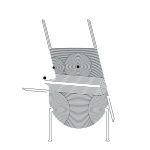When people make lists of addictions, rarely do they list making excuses.
Most people do it more than they realise. We make excuses to/for:
ㆍ Protect ourselves from our fears.
ㆍ Avoid exploring the boundaries of our comfort zone.
ㆍ Justify when we do not commit to what we said we would like to do.
ㆍ Avoid learning more about ourselves that might make us feel uncomfortable.
We make excuses, so we do not have to test our assumptions.
Have you ever thought about why we make excuses?
Oftentimes, it is because we doubt ourselves or because we are scared. Leaving our comfort zones can initially feel daunting, but underneath these feelings could be underlying fears such as encountering failure, rejection, making mistakes or being judged by others. Maintaining these beliefs can limit us from moving forward, we may resist the uncomfortable feelings or use them as excuses to avoid feeling the fear and doing it anyway.
How are making excuses hurting you?
We end up waiting until the last minute to do everything. We are never ready to take the next steps, so we feel forced, and that makes us resentful. Not only that, but we are not 100% ready for anything, and we do have the option to learn as we go but for some needing to make everything ‘perfect’ before getting started can cause us to procrastinate and not move at all, which creates more excuses and a cycle of ‘perfectionism’.
Oh, and forget about motivation.
It is non-existent. Is there a pain or stress of a current situation that is pushing you into making a necessary change? Some may try to motivate themselves by focusing on the ‘reward’ when their inner driver may be more connected to the pain of NOT overcoming their current challenge. Become aware of what drives you and tap into those feelings to avoid forcing yourself to connect with an idea that does not resonate with you. It will make you postpone something rather than do it right now – if it makes you feel insecure or unsafe, you probably do not want to do it.
Figure out another plan. This is not for you. You have been hibernating in your comfort zone for too long. If a deadline is too soon, you need something with smaller steps and more flexibility.
Sometimes, an excuse is nothing more than a lie. It is merely a strategy we use to hide certain realities.
For those needing to work with excuse makers, here are a few tips:
ㆍ It is important not to ignore the problem when you detect that someone is making excuses. It is best to confront them and push them to be sincere, especially with themselves.
ㆍ You must respectfully tell them that an excuse is a lie they are telling themselves.
ㆍ If excuses are your lifesavers, jump in and learn to swim.
Many people resort to the most imaginative justifications for not facing what they are afraid of and continue to put it off. Thus, if you want to be respected and, above all, feel good about yourself, you must set excuses aside and simply act, confront, resolve, and transform.

